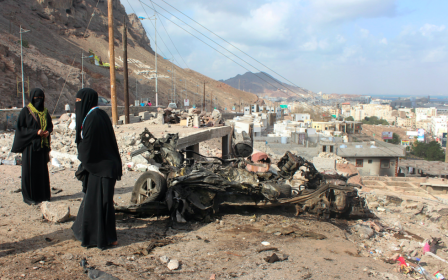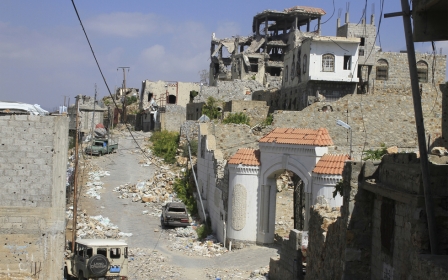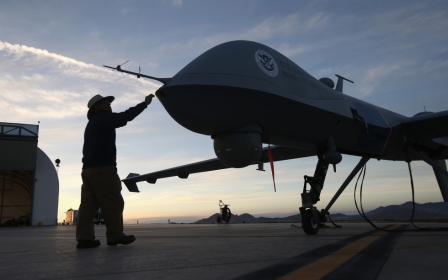Family of 5 killed in coalition strike on Yemen capital

Five members of the same family were killed when a Saudi-led coalition air strike hit their home in Yemen's rebel-held capital Sanaa, rescuers and neighbours said on Wednesday.
According to neighbours who identified the body, the father was Mounir al-Hakimi, a programme director at the Yemen Today television channel, which is owned by former president Ali Abdullah Saleh.
His body along with that of two of his children were still under the rubble of the destroyed building, while rescue workers managed to pull out the bodies of the wife and young daughter, according to an AFP photographer at the site.
It was not immediately clear if there were any other people in the building when it was hit.
Saleh's supporters are allied with Houthi rebels who have controlled Sanaa since 2014.
Yemen Today TV channel itself said on its website that four family members were killed in an air strike but did not mention Hakimi or confirm that the victims were members of his family.
The building is located near the rebel-controlled presidential headquarters in central Sanaa, which was struck by a missile overnight.
A car repair garage and a nearby private school were also hit, causing damage, according to an AFP photographer.
No casualties were reported in these strikes.
The coalition has been carrying out air strikes against Houthi rebels across Yemen since March.
The United Nations says more than 6,100 people have been killed in Yemen's conflict since the coalition began its raids, about half of them civilians.
The coalition last month announced that an independent inquiry would examine charges of possible abuses against civilians in the conflict.
Late last month, a panel of UN experts said the coalition has carried out 119 sorties that violated humanitarian law, and called for an international probe.
Kingdom has ‘stalled Safavid march’
Saudi Grand Mufti Abdul Aziz ash-Sheikh on Tuesday praised the Saudi campaign in Yemen saying it had stalled the "Safavid march", using a common sectarian term for Shias. Iran has long been accused of backing the Shia Houthi militias, although the exact level of its support remains unclear.
“This expansion of the Safavids is intended to harm Islam and Muslims," he said at a welcoming ceremony for scholars at Janadriyah. "It is necessary to be united at a time when the enemies are trying to sow ignorance in our community and disturbing the Islamic nation’s peace and stability.
“Custodian of the Two Holy Mosques King Salman launched Operation Decisive Storm in coordination with Arab and Islamic nations to defend our faith which is facing a devious attack from the Safavids," he added.
The Grand Mufti has provoked controversy in past for a number of proclamations seen as outlandish by international observers, such as calling for the destruction of all Christian churches in the Gulf or condemning chess as forbidden in Islam.
Abdul Aziz ash-Sheikh claims to descend from Mohammed ibn Abd al-Wahhab, the 18th century Islamic scholar who aided Muhammad bin Saud in founding the first Saudi state.
The ideology of "Wahhabism" that underlies Saudi Arabia has been pointed to by critics as fundamental to al-Qaeda and the Islamic State - both of whom are currently involved in the Yemen war - though Abdul Aziz ash-Sheikh has previously condemned IS as "enemy number one of Islam".
New MEE newsletter: Jerusalem Dispatch
Sign up to get the latest insights and analysis on Israel-Palestine, alongside Turkey Unpacked and other MEE newsletters
Middle East Eye delivers independent and unrivalled coverage and analysis of the Middle East, North Africa and beyond. To learn more about republishing this content and the associated fees, please fill out this form. More about MEE can be found here.




